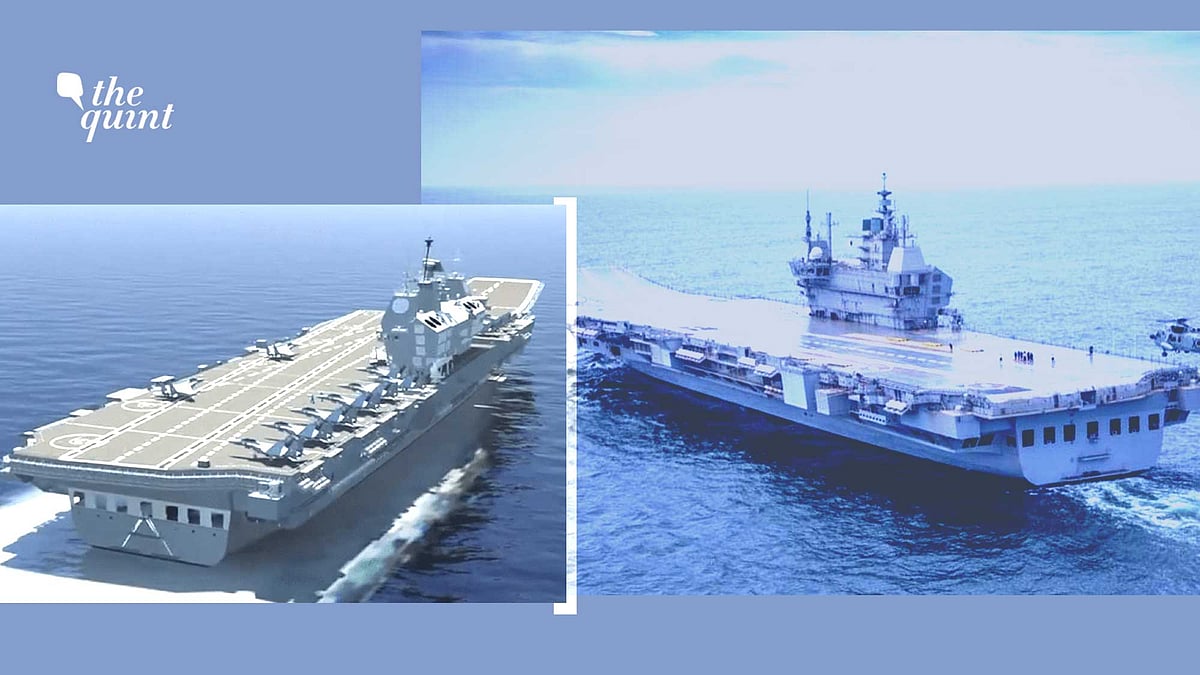INS Vikrant Starts Its Sea Trial: Why It's a Historic Moment for India
Named after India's first aircraft carrier and Indian Navy's crown jewel from 1961-1997, 'Vikrant' is India's pride.

advertisement
Video Editor: Sandeep Suman, Ashutosh Bhardwaj
The much-awaited maiden sea trial of 'Vikrant', also known as Indigenous Aircraft Carrier 1 (IAC-1), finally kicked off on the coasts of Kochi on Wednesday, 4 August. With that, India joined an elite group of countries, making it a historic and proud moment for the nation, for more reasons that one.
India's First Indigenously Made Aircraft Carrier
Named after India's first aircraft carrier and the Indian Navy's crown jewel from 1961 to 1997, INS Vikrant is India's first indigenously designed and built aircraft carrier.
INS Vikrant has been designed by the Indian Navy’s Directorate of Naval Design and built at the state-owned Cochin Shipyard Limited. The project cost nearly Rs 23,000 crore.
India currently has just one aircraft carrier – the solitary 44,500-tonne INS Vikramaditya, which was inducted from Russia for $2.33 billion, on November 2013. Once INS Vikrant is commissioned in August 2022, India will have two aircraft carriers for its eastern and western seaboards. Goes without saying, it is going to up the country's maritime capabilities.
Naturally, the Indian Navy, in a statement, called it a significant achievement in the nation's "quest for Atmanirbhar Bharat and Make in India initiatives", with more than "76% indigenous content."
(Graphics: Arnica Kala)
The Big Stats...
The indigenous aircraft carrier is now seemingly the largest and the most complex warship designed and built in India.
Besides, the ship has been designed with a very high degree of automation for machinery operation, navigation, and survivability. INS Vikrant has a top speed of close to 28 knots and cruising speed of 18 knots with an endurance of about 7,500 nautical miles.
(Graphics: Arnica Kala)
India Enters Elite Club
With its first indigenous aircraft carrier, India has also joined an elite group of a handful of countries that manufacture and operate their own aircraft carriers. INS Vikrant has put India in the league of US, UK, Russia, France, and China that have the 'niche capability' to indigenously design, build, and integrate aircraft carriers.
While India is currently operating with just one aircraft carrier – INS Vikramaditya – neighbour China operates on two – CV-16 Liaoning and CV-17 Shandong – and is in the process of building a third one to expand its footprint in the Indian Ocean Region.
(Graphics: Arnica Kala)
Once inducted, INS Vikrant will be the fourth aircraft carrier to be operated by the Indian Navy after INS Vikrant (from 1961 to 1997), INS Viraat (from 1987 to 2016), and INS Vikramaditya (2013 onwards).
With a displacement of 37,500 tonnes, the warship will operate:
MiG-29K fighter jets
Kamov-31 helicopters
MH-60R multi-role helicopters, and
the indigenous advanced light helicopters
(Graphics: Arnica Kala)
Work on the ship's design began in 1999, and the keel was laid in February 2009. The carrier was floated out of its dry dock on 29 December 2011 and was launched on 12 August 2013. Basic trials were completed in December 2020.